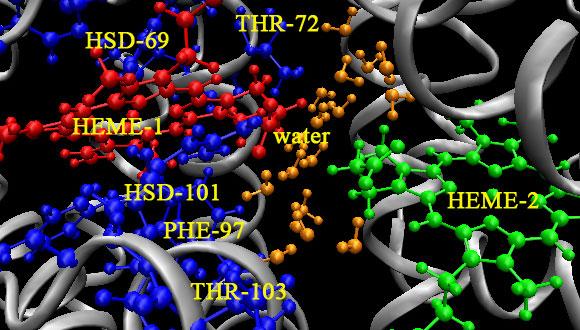Special Chemical Physics Seminar: The Dynamics of Charged Excitons in Electronically and Morphologically Homogeneous Single-Walled Carbon Nanotubes
Michael J. Therien, Department of Chemistry, French Family Science Center, Duke University, Durham
Abstract:
The trion, a three-body charge-exciton bound state, offers unique opportunities to simultaneously manipulate charge, spin and excitation in one-dimensional single-walled carbon nanotubes (SWNTs) at room temperature. Effective exploitation of trion quasiparticles requires fundamental insight into their creation and decay dynamics. Such knowledge, however, remains elusive for SWNT trion states, due to the electronic and morphological heterogeneity of commonly interrogated SWNT samples, and the fact that transient spectroscopic signals uniquely associated with the trion state have not been identified. Here length-sorted SWNTs and precisely controlled charge carrier-doping densities are used to determine trion dynamics using femtosecond pump-probe spectroscopy. Identification of the trion transient absorptive hallmark enables us to demonstrate that trions (i) derive from a precursor excitonic state, (ii) are produced via migration of excitons to stationary hole-polaron sites, and (iii) decay in a first-order manner. Importantly, under appropriate carrier-doping densities, exciton-to-trion conversion in SWNTs can approach 100% at ambient temperature. We further show that ultrafast pump-probe spectroscopy, coupled with these fundamental insights into trion formation and decay dynamics, enables a straightforward approach for quantitatively evaluating the extent of optically-driven free carrier generation (FCG) in SWNTs: this work provides fundamental new insights into how quantum yields for optically-driven FCG [Φ(Enn → h+ + e−)] in SWNTs may be modulated as functions of the optical excitation energy and medium dielectric strength. Collectively, these findings open up new possibilities for exploiting trions in SWNT optoelectronics, ranging from photovoltaics, photodetectors, to spintronics.


